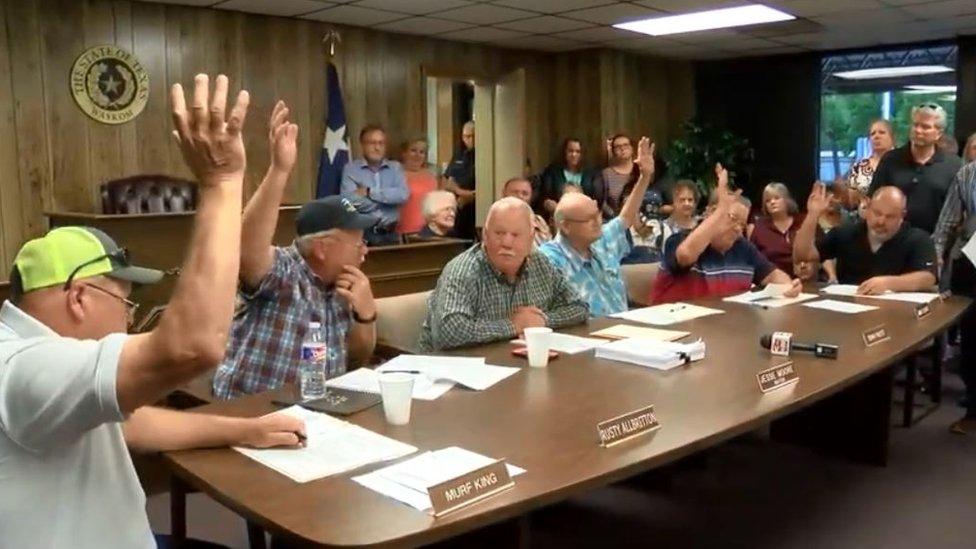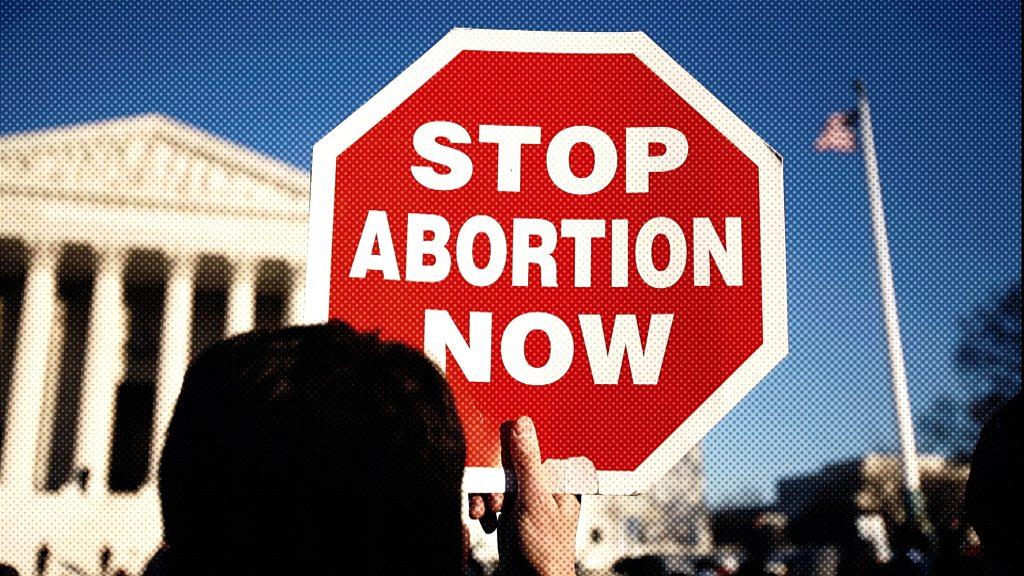Texas town bans abortion in all-male city council vote
- Published

Waskom city council passes its ban
All five members of the entirely male Waskom city council have declared their East Texas town a "sanctuary city for the unborn".
The unanimous vote prohibits abortion within Waskom's city limits, leaving exceptions in the case of rape, incest or serious risk to the mother's life.
There are no abortion clinics in Waskom but councilmen told local media the ban was a necessary preventative measure.
It is part of a wider movement of abortion restrictions sweeping the US.
Anti-abortion campaigners expect the new restrictions to be challenged and defeated in the courts, but hope that the appeals process will escalate to the Supreme Court.
There they hope to undermine or even overturn completely the landmark 1973 Roe v Wade ruling, which established a constitutional right to abortion throughout the US.
Local media footage of the vote showed Mayor Jesse Moore caution other council members that they may be sued for passing the ban.
"It could go to the Supreme Court," he said.
Mark Lee Dickson, director of Right to Life of East Texas and an advocate for the ban, wrote on Facebook that the measure was "history in the making".
"It is good to see the men of Waskom rise up to protect women and children," he wrote.
The abortion battle explained in three minutes
Waskom modelled its ban on a similar resolution in Roswell, New Mexico, which declared its support for "foetal life" in March.
The Waskom measure also borrows language from the movement for immigrant rights. In some major cities, "sanctuary" laws mean that local authorities do not co-operate with immigration officials.
Abortion is already prohibited in Texas after 20 weeks. This week, Texas Governor Greg Abbott signed a bill to block any taxpayer money from going to abortion providers.
What is access to abortion like in the US?
Nearly 30 states have introduced some form of restriction on abortion so far this year.
Fifteen of these bans, in states such as Louisiana and Georgia, forbid abortion as early as six weeks into a pregnancy - before many women even know they are pregnant.
Anti-abortion supporters have dubbed these six-week bans "heartbeat bills" as they outlaw abortion as soon as what they describe as a foetus' heartbeat is detectable. But the American College of Obstetricians and Gynaecologists says that name is misleading, as what is being detected is "a portion of the foetal tissue that will become the heart as the embryo develops".
In May, Alabama lawmakers passed a bill to outlaw abortion outright.
However despite this abortion remains legal in all 50 US states.
Other states have also acted to protect abortion rights were Roe v Wade to be overturned.
On Wednesday, Illinois passed laws to protect or expand abortion access, following Maine, New York, Vermont and Nevada.
According to the Guttmacher Institute, a group that researches sexual and reproductive health, 19 states have laws that could be used to restrict abortion, while 10 states have laws that protect abortion rights.
- Published14 June 2019

- Published9 July 2018

- Published17 May 2019
